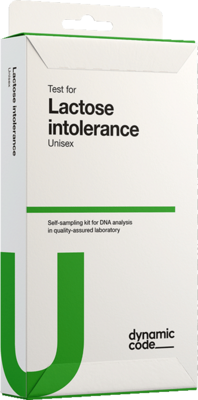About Lactose intolerance
About lactose
Lactose intolerance is a common digestive problem, which gives rise to symptoms such as gas, diarrhea, bloating or pains. A person that is lactose intolerant lacks the enzyme lactase in the small intestine, which is needed to digest milk sugar molecules. This means that lactose can not be absorbed by the intestine and is instead broken down in a process involving intestinal bacterias. This process gives rise to symptoms such as gas, diarrhea, bloating or pains. Lactose is found primarily in dairy products, but also as an additive in other products, e.g. certain chips and powdered products.
-
If lactose cannot be broken down in the small intestine, the lactose will be fermented by bacteria in the large intestine and give rise to gas. The gas formation and the water-absorbent effect of the lactose produce symptoms such as diarrhea, bloating, stomach gurgling and colic pains. The symptoms may vary from person to person. Some people tolerate dairy products in small quantities and others not at all.
-
There are three different forms of lactase deficiency:
Primary lactose intolerance, which is the most common form. The age at which the associated digestive problems arise varies between individuals: However most commonly lactase deficiency occurs during adulthood. The capacity to form lactase cannot be regained, but a certain capacity may remain, which means that small quantities of lactose can still be broken down.
Secondary lactase deficiency appears in connection with some other injury to the intestine. With untreated gluten hypersensitivity, inflammation in the intestine, severe stomach flu or after an abdominal operation, the intestinal membrane may be damaged in such a way that it can not produce lactase. When the injury is healed, most often the capacity to produce lactase returns.
Congenital lactase deficiency is extremely uncommon and is often discovered when the child is nursing or receives a substitute for mother's milk.
In case of primary lactose intolerance, the deficiency of enzyme lactase depends on inherited genetic variation. Evolutionary speaking, it was discovered that ability to digest lactose was beneficial for populations where milk products were included in diet, therefore mutations have arisen that led to tolerance of lactose. However, there is still a small proportion of individuals in those populations that have the genetic variant associated with lactose intolerance. Two parents who are lactose tolerant can have children who are lactose intolerant.
-
If you are lactose intolerant you should avoid or limit the intake of products that contain lactose. This is a simple way for you to get rid of your discomforts. The enzyme lactase may also be added to the diet. If you want more help or advice you can contact a physician or a dietician.
